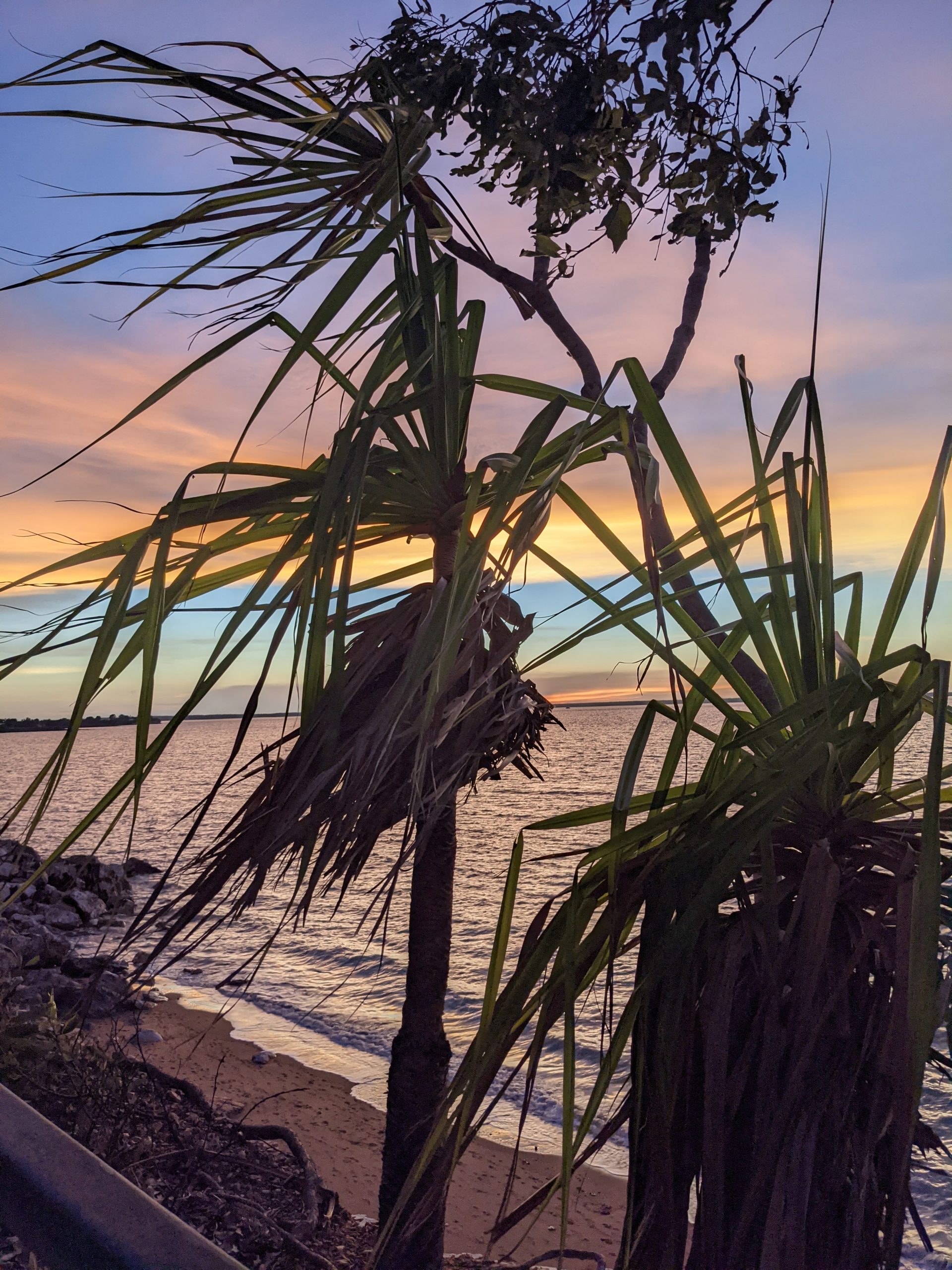Editorial
Editorial

The seasons are shifting. The air is heavier. Dry season’s blue skies now speckled grey by cloud formations teasing the rains we crave. Humidity rising. Larrakia Country.
The rains that teased for weeks broke as we finalised this issue’s copy. Blue speckled skies now a light grey plane with an occasional peek of blue. Mosquitoes biting. Green tree frogs singing. Larrakia Country.
After a three-year hiatus, it feels fitting that we return with a special issue dedicated to the Voice referendum. The referendum is close to the heart of Territorians, as thirty percent of our population is Indigenous, the highest in the nation. This special issue also speaks to the very heart of what Borderlands is and why Borderlands was founded: as a space to a give a voice to Territory and First Nations storytellers – stories of this place, by storytellers from this place, in all storytelling traditions.
With this special issue, we wanted to create a space for Northern and Indigenous voices to have a voice on the Voice. These are voices grounded in place, in people, in language, in landscape; voices that speak to the heart of the referendum and remind us that beneath the political maelstrom that’s ensnaring this conversation, we’re talking about a decision that will have lasting impacts on people, lives and livelihoods. The storytellers published in this special issue tether The Voice referendum to this space.
In her poem ‘Noise’ poet Leni Shilton reminds us that it is a time to listen. The poem is accompanied by a translation into Yolŋu Matha by Brenda Muthamuluwuy. With this sentiment in mind we invite you to immerse yourself in the stories told in this edition and reflect on what the Voice to Parliament means and what is being asked of us in the upcoming referendum.
Theona Councillor’s poems ‘The Aborigine’, ‘Home’ and ‘We Are The Potter, You Are The Clay’ reflect on our nation’s fragmented, shameful history while reminding us that this remains just a miniscule part of this land’s bigger story and legacy. ‘Home’ is accompanied by a translation into Yolŋu Matha by Galathi Dhurrkay.
In Mia Stanford’s memoir ‘Do Aboriginal People Get Punished For Their Crimes?’ she ruminates on what it means to live in a place where her very existence is scrutinised daily, despite this being her Country. These themes are further explored in Tilda Colling’s poem ‘Shifty Eyes’, which is accompanied by a spoken word recording.
Voice sings in tandem with land and landscape, as Emma Trenorden shows us in her lyric memoir piece ‘The Anatomy of The Voice’. In Rosalind Beadle’s memoir ‘Why Our Kids Need The Voice’, the writer reflects on her family’s decision to move to a remote Indigenous community to experience a part of the country so many think they know from newspaper headlines but never truly see.
An important part of this special issue is to acknowledge and listen to all sides of the story while not providing additional airtime to the disinformation that has encircled the Yes and No campaigns leading up to the referendum. Timothy Parish’s essay ‘The Voice of Disinformation’ examines the role of social media in creating and sharing false narratives, while Undergrowth Productions hit the streets of Darwin to interview locals about how they plan to vote in October.
To close out this special issue, Leni Shilton’s poem ‘Inma’ grounds us back in Country, beautifully translated into Yolŋu Matha by Brenda Muthamuluwuy.
In the spirit of listening, we will keep this editorial short. This special issue is not about Borderlands, but about the voices published within, and about the upcoming Voice.
Our sincere gratitude to the Copyright Council Agency for funding this special issue.
-Raelke, Tilda, Emily, Craig, Adelle, Jennifer, Anna-Rita, Amy
The Borderlands Editorial Team